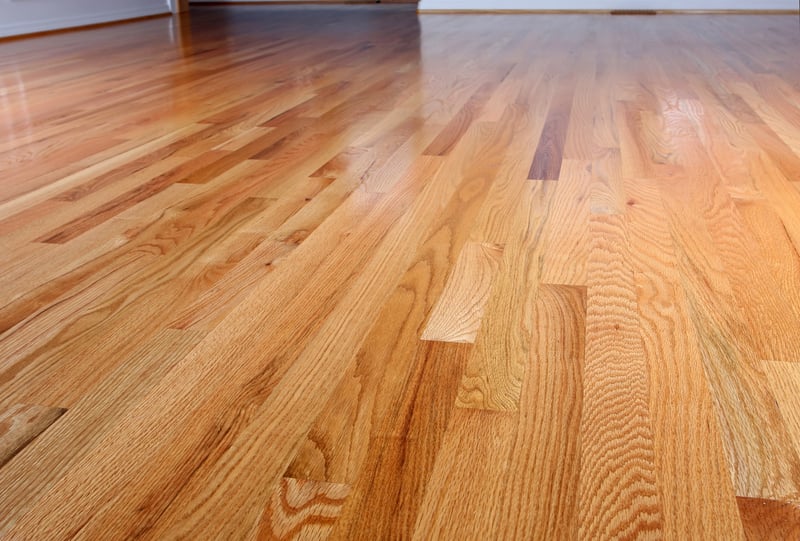How to Steam Clean Your Mattress
Posted on 27/11/2024
A good night's sleep is essential for optimal health and well-being, and a clean mattress plays a crucial role in ensuring that you get the rest you need. Over time, mattresses accumulate dust mites, bacteria, and various allergens, which can affect the quality of your sleep and even trigger health issues. One effective way to keep your mattress clean is by steam cleaning it. In this guide, we'll walk you through the process of steam cleaning your mattress step-by-step.
Why Steam Clean Your Mattress?
Traditional cleaning methods such as vacuuming and spot cleaning can help maintain your mattress, but they often fall short of providing a thorough cleanse. Steam cleaning, on the other hand, offers several advantages:
- Effective Deep Cleaning: Steam penetrates deep into the mattress layers, eliminating dust mites, bacteria, and other contaminants.
- Eco-Friendly: Steam cleaning uses only water and heat, reducing the need for chemical cleaning agents.
- Odor Removal: Steam effectively removes odors caused by sweat, spills, and other sources.
- Improved Air Quality: By removing allergens and bacteria, steam cleaning can significantly improve indoor air quality, which is beneficial for those with allergies or respiratory issues.

Materials You Will Need
Before starting the steam cleaning process, gather the following materials:
- Steam cleaner (with upholstery attachment)
- Vacuum cleaner (with upholstery attachment)
- Spray bottle
- Baking soda
- Essential oils (optional)
- Clean, dry towels
- Fan (optional)
Preparation Steps
Preparing your mattress for steam cleaning involves a few essential steps. Make sure to follow these to ensure a thorough and effective cleaning process:
1. Strip the Bed
Remove all bedding, including sheets, mattress protectors, and pillowcases. Wash them separately according to their care instructions. This ensures that your entire sleep environment is clean and fresh.
2. Vacuum the Mattress
Use your vacuum cleaner with the upholstery attachment to vacuum the entire surface of the mattress. Pay special attention to seams, edges, and crevices where dust and debris tend to accumulate. This step helps to remove loose dirt and particles, making the steam cleaning more effective.
3. Treat Stains
If your mattress has any stains, it's best to treat them before steam cleaning. Use a spray bottle filled with a mixture of water and a bit of mild detergent to lightly mist the stained area. Allow it to sit for a few minutes before blotting it with a clean, dry cloth. For stubborn stains, you can use a mixture of baking soda and water to form a paste and apply it to the stain. Let it sit for 30 minutes before vacuuming it off.
Steam Cleaning the Mattress
With the preparation steps complete, you're ready to begin steam cleaning your mattress. Follow these steps carefully:
1. Set Up the Steam Cleaner
Fill the steam cleaner with water according to the manufacturer's instructions. If you want to add a pleasant scent to your mattress, you can add a few drops of essential oils to the water. Make sure the steam cleaner is equipped with an upholstery attachment, as this will allow you to clean the mattress more effectively.
2. Test a Small Area
Before you begin steam cleaning the entire mattress, test a small, inconspicuous area first. This ensures that the steam and any added essential oils won't damage the mattress fabric. If there are no adverse effects, you can proceed to steam clean the entire mattress.
3. Steam Clean Each Section
Divide the mattress into sections for systematic cleaning. Starting from one corner, slowly move the steam cleaner across the mattress in overlapping strokes. Hold the steam cleaner about 6-8 inches above the surface and allow the steam to penetrate the fabric. Avoid soaking the mattress - the goal is to use enough steam to kill bacteria and remove dirt, but not so much that it saturates the mattress.
4. Pay Extra Attention to High-Traffic Areas
Areas of the mattress where you lie most often, such as the middle, should be given extra attention. Make multiple passes over these sections to ensure a thorough clean. Additionally, focus on seams and edges, as they can harbor bacteria and allergens.
After Steam Cleaning
Once you've completed the steam cleaning process, there are a few additional steps to ensure your mattress is completely dry and ready for use:
1. Allow the Mattress to Dry
It's crucial to allow your mattress to dry thoroughly before putting any bedding back on. Leaving your mattress damp can lead to mold and mildew growth. To speed up the drying process, open windows or use a fan to promote air circulation in the room.
2. Vacuum Once More
After the mattress has dried completely, use the vacuum cleaner once more to remove any remaining debris and freshen up the surface. This step also helps to lift the fibers, making your mattress feel softer and more comfortable.
3. Apply Baking Soda (Optional)
If you want to add a fresh scent and extra moisture-absorbing capabilities, sprinkle a thin layer of baking soda over the mattress surface. Let it sit for 30-60 minutes before vacuuming it off. This additional step can help to keep your mattress smelling fresh and feeling dry.
4. Replace Bedding
Once you are confident that the mattress is completely dry, replace the bedding with clean, freshly laundered sheets, pillowcases, and mattress protectors. Your mattress is now ready for a restful and hygienic night's sleep.

Maintenance Tips
To keep your mattress in the best possible condition between steam cleanings, consider these maintenance tips:
- Use a Mattress Protector: A waterproof mattress protector can help prevent stains and spills from penetrating the mattress surface.
- Regular Vacuuming: Vacuum your mattress every 1-2 months to remove dust and allergens.
- Rotate and Flip: Rotate and flip your mattress every 3-6 months to promote even wear and extend its lifespan.
- Wash Bedding Frequently: Wash your sheets, pillowcases, and mattress protectors regularly to maintain a clean sleep environment.
Conclusion
Steam cleaning your mattress is an effective way to ensure a clean and hygienic sleeping surface. Not only does it eliminate dust mites, bacteria, and allergens, but it also removes odors and improves air quality. By following the steps outlined in this guide, you can maintain a healthy sleep environment and extend the life of your mattress. Remember to perform regular maintenance and adopt good sleep hygiene practices to enjoy the benefits of a clean and comfortable bed. Sweet dreams!
Latest Posts
Simple Methods to Transform Your Cleaning Routine the Eco-Friendly Way
Step-by-Step Guide to Effectively Remove Grease Stains Every Time







